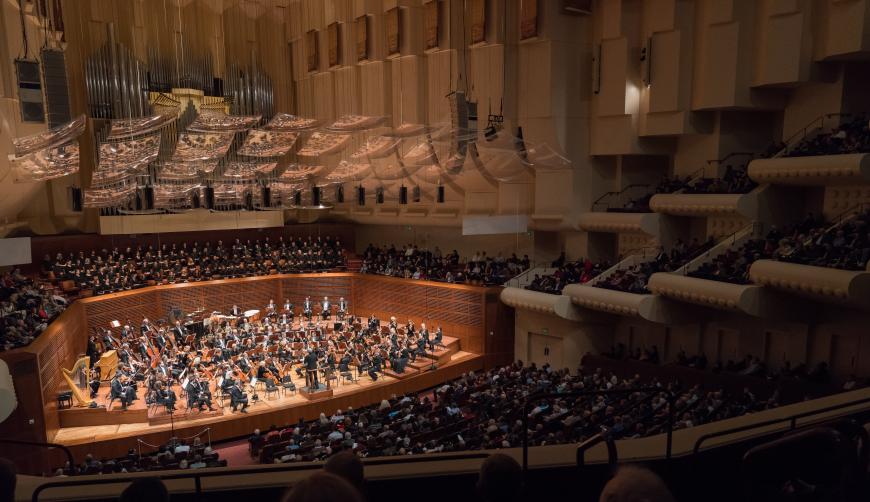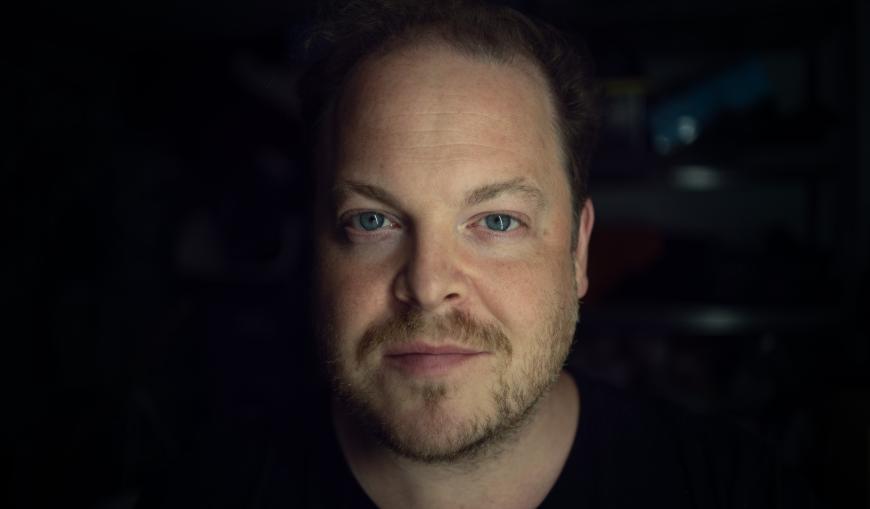
There’s a moment in Tony Kushner’s Angels in America when that great 1991–1992 play’s hero, Prior Walter, hears the sound of wings beating overhead. Astonished but never at a loss for words, he looks up as an enormous angel crashes through the ceiling of his apartment. “Very Steven Spielberg,” Prior marvels.
That scene came to mind on Thursday, Oct. 26, as guest conductor Elim Chan launched the San Francisco Symphony on a thrillingly theatrical visit to Mars in the first movement of Gustav Holst’s The Planets. From there and beyond, to six other orbs in the solar system, the confines of Davies Symphony Hall seemed to expand, with mighty brass outbursts, voluptuous strings, surging woodwinds, harp and celesta filigrees, and a battery of perseverating percussion all fully onboard and tightly bonded for this exhilarating ride.
Is Holst’s 1916 work a great piece of music? Maybe not. But in a reading both exciting and exacting, Chan and the orchestra made the case for the piece as something much more than a flashy showcase. Each planet took on its own distinctive character, right up to the cinematically far-off female voices of the SF Symphony Chorus floating down from the hall’s lofty balcony in “Neptune, the Mystic.” Along the way came ecstasy and violence, serenity and tumult, cosmic joy and looming menace. Color became content, freshly realized.

“Mars, the Bringer of War” set the high-impact terms of the performance. After some softly thrumming measures, the brasses erupted, driven on by two crescents of timpani seemingly bent on conquest. Even as the battle took a breather, an insistent snare drum served as a tension-sustaining segue into more double-barreled brass exclamations. The trombones sounded especially urgent.
And so it went, from Robert Ward’s mellow horn solo in “Venus, the Bringer of Peace” to the gamboling rhythms of “Mercury, the Winged Messenger” to the famously ingratiating theme, endearingly voiced here, of “Jupiter, the Bringer of Jollity.” More high-spirited humor arrived in the burlesque antics of “Uranus, the Magician,” which featured chittering high woodwinds, a chiding contrabassoon, and a festive tambourine.
Somehow, even a few unsteady passages and disconnects contributed to the overall vitality. The Planets felt fully dimensional, tiny craters and all.
Chan, who made a dynamic impression earlier this year leading an SFS performance of Tchaikovsky, Prokofiev, and Elizabeth Ogonek’s Moondog (another work inspired by celestial matters, in that case stargazing), built on her January triumph. Small of stature, she reads big on the podium, summoning and shaping responses with dynamic gestures, wide-flung arms, and a buoyant full-body involvement. A baton would have been superfluous.

The shorter first half of the program, reprised Oct. 27–28, was devoted to Benjamin Britten’s 1939 song cycle Les Illuminations. Making his way through an abundance of dreamy and incantatory text by the poet Arthur Rimbaud, tenor Andrew Staples navigated the verbal thicket without finding enough distinctive, characterizing investment in it. To be fair, the work packs a lot into its 10 sections with a total running time of just over 20 minutes. The house lights were left just high enough for listeners to follow the printed text as best they could.
Staples had his moments, notably with a lyrically limber portamento in Rimbaud’s erotically feverish “Antique.” But even as the tenor modulated his dynamics and expression, he left a monochrome impression.
The strings, meanwhile, supplied vibrant support, whether with eerie harmonics, a lambent flowing line, or piquant phrasing. The most persuasive singing, by and large, came from the ensemble.




